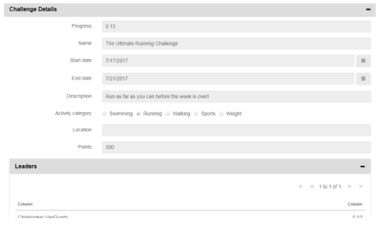In 2014, the University of Pennsylvania’s Quattrone Nanofabrication lab needed to improve its equipment reservation system. By leveraging the professional services of a Kinetech business engineer and adopting the Mendix App platform, they got so much more! The final solution is an integrated scheduling, billing, and access management application. Together, with guidance and training provided by Kinetech, the team created a customized application from scratch that delivers the exact capabilities they need, with the flexibility to create new functionality in the future - a unique characteristic of the app platform that has been recognized by Gartner. The result is IRIS - the Instrument Reservation and Interlocking System.
Challenge
Before the grand opening of the Singh Center for Nanotechnology, Noah Clay, the director of the center had a problem. How could his team manage the secure reservations, usage reports, and billings of the equipment for the new research facility? Scheduling for the equipment in the past was done using an old conference room calendaring application. Billing was done using Excel, some records were still entered on paper logs, and changes in user authorizations had to be done manually.
Solution
Clay, a former lab leader at Cornell and Harvard, had experience working with more advanced billing, reporting, and reservation systems – and he set out to upgrade the apps at Penn. He looked into off-the-shelf software, but the customization needed would have been cost prohibitive and did not meet the extremely tight timeline. Internal IT developers at Penn could have created apps that performed the functions, but they estimated it would have taken more than a year. Clay needed another solution.
Clay turned to Kinetech’s professional services team and Mendix's application platform, to create a single integrated application that would run all billing, equipment reservation and analytics for the lab. The app would replace all the legacy systems that handled these functions. He needed to move quickly, to get the new system up and running when his lab moved into a new central location in the spring. The team built the app in February, ran tests in March and had it deployed by early April. He also needed to have it fit into a tight budget.
Results
With one week of training from Kinetech, a team of three non-technical laboratory professionals, and a Mendixcertified engineer conducted all of the development of the new app using the Mendix business modeler. The team created sophisticated reservation rules (not allowing one researcher to monopolize the use of a tool, or “releasing” a tool for use if a user does not sign in within 15 minutes of the start time of the booking, for example). The team also built new reporting capabilities that streamlined the billing process - graduate researchers and external personnel alike can reserve the equipment, associate the reservation to a specific project, and bills can be generated monthly to book against research budget or bill external institutions.
In addition, the new status reporting can give up to the second information regarding equipment usage and availability. “This is critical because if an emergency happens in the lab, the team can quickly see who is “checked-in” to the equipment and can ensure their safe evacuation from the premises. We are very proud to help a first-class research institution like the University of Pennsylvania automate their reporting functions while increasing the safety of personnel present. This project was a great success and shows what is possible with a capable team, the right tools, and adoption of the agile methodology” said Michael Guido, CEO of Kinetech.
IRIS also handles training requests, user-management, reservations, billing, incident management, interlocking, tools, and equipment management. The entire solutions took approximately two (2) months to build and test with the initial prototype launched in one (1) week and the beta version launched in only four (4) weeks. Kinetech also wants to recognize University of Pennsylvania personnel Jaime Ford, Eric Johnston, Matt Brukman, Conor Schaefer, Bill Krebs, Helen Anderson, and Ira Winston. UPENN & Mendix partner with Kinetech to build Equipment Reservation System.
About UPenn
The Krishna P. Singh Center for Nanotechnology is a premier facility that integrates state-of-the-art nanotechnology equipment. Researchers use its equipment in the manipulation of matter on an atomic and molecular scale. The building merges the operations of three interdisciplinary laboratories. Facilities serve research and educational programs at Penn and are leveraged by partner institutions and local industry within the greater Philadelphia area.
.png?width=246&height=70&name=Kinetech%20PM%20246%20x%2070%20(1).png)


